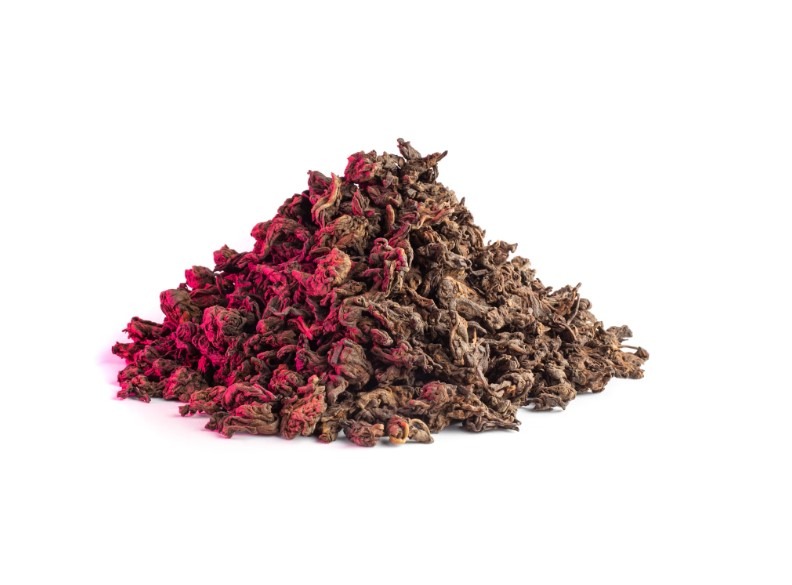Its primary purpose is to digest food and absorb the nutrients necessary for human health. Bloating, constipation, diarrhea, and indigestion are just a few of the digestive issues plaguing many people. Herbal infusions have improved digestive health and overall wellness, which we shall discuss in this post.
Understanding Herbal infusions
To prepare a herbal infusion, herbs are first steeped in boiling water. Unlike tea, which must be produced from tea leaves, herbal infusions can be created from almost any part of a plant. Infusing herbs in hot water allows their medicinal properties to be more readily absorbed by the body. For millennia, people have turned to herbal infusions as a natural cure for anything from headaches to stomachaches. They are preferable to OTC drugs, which may have adverse reactions and be hazardous if used excessively.
For optimal gut health and digestion, try one of these herbal infusions
Peppermint
Peppermint is a well-liked plant widely used for ages to ease gastrointestinal distress. Menthol, a component, helps calm the digestive system by soothing the muscles there. Bloating, gas, and indigestion may find some relief from this. Peppermint infusions may be made by steeping a handful of fresh peppermint leaves in a cup of hot water for 5-10 minutes. One spoonful of honey can be added for additional sweetness.
Ginger
Another plant lauded for its ability to aid digestion is ginger. It includes the anti-inflammatory compound gingerol, which helps calm the digestive tract.
Nausea and vomiting can also be eased by ginger. A cup of ginger infusion may be made by grating some fresh ginger root and mixing it with boiling water. After 5-10 minutes, remove the ginger and serve.
Chamomile
The relaxing qualities of chamomile are well-known. Add a few teaspoons of dried chamomile flowers to a cup of boiling water and let them sit for 5-10 minutes to produce a soothing chamomile infusion. One spoonful of honey can be added for additional sweetness.
Fennel
Fennel is a popular herb in Mediterranean cooking. It includes the anti-inflammatory compound anethole, which also aids in gas and bloating relief. Fennel can also aid in digestion by breaking down food and easing constipation. One spoonful of honey can be added for additional sweetness.
Dandelion
As a natural diuretic, dandelion is a popular herbal remedy. Dandelion infusions can be prepared by steeping a handful of dried dandelion leaves or roots in a cup of hot water for 10 minutes. One spoonful of honey can be added for additional sweetness.
Can I safely drink a herbal infusion?
Herbal teas and infusions are safe to consume. However, it’s smart to proceed with care when first trying a new plant. Before trying a new herbal infusion, consult your doctor; certain herbs may interfere with drugs or have negative effects.
Do herbal infusions help with gastrointestinal issues?
Herbal infusions can help with digestive issues like bloating and indigestion but won’t treat the underlying causes. Consultation with a medical expert is necessary when dealing with persistent stomach problems.
For optimal digestive health, how frequently should I take herbal infusions?
Depending on the herb and individual, digestive health can be improved by drinking herbal infusions daily, weekly, or monthly. Having one or two cups of herbal infusion daily is fine, but if your body tells you otherwise, pay attention.
What herbs should I avoid if I’m concerned about my gut health?
Many herbs are helpful for the digestive system, but some might be hazardous if used improperly or in large doses. If you already have hypertension, you should avoid licorice roots. Before attempting a new herb for digestive health, it is necessary to complete research and talk to a medical practitioner.
Is it safe to give kids herbal infusions for tummy troubles?
Herbal infusions are not appropriate for children unless administered by a medical expert. It’s possible that certain herbs aren’t suitable for kids or might have negative interactions with prescription drugs.
Is it safe to consume herbal infusions when medicated?
If you are currently taking any drugs, it is recommended that you discuss the possibility of an interaction between your herbal infusion and your medication with your doctor.
Can I make a herbal infusion with dried herbs?
Herbal infusions may be made from dried herbs; that much is certain.
Do herbal infusions have any negative consequences when consumed?
While most individuals can drink herbal infusions without incident, others may encounter undesirable consequences. If you start to feel unwell after taking a herbal supplement, it’s best to stop immediately and seek medical attention.
Can I sweeten or milk up a herbal brew?
Sweetening herbal infusions with milk or sugar can improve their flavor, but doing so may diminish the herb’s therapeutic effects. It is advisable to drink an unsweetened herbal infusion if you are doing so for the therapeutic benefits.
Conclusion
If you want to improve your digestive health and your gut’s overall wellness, consider trying a herbal infusion. Ginger, peppermint, and chamomile are just a few examples of useful herbs for this function. Try a new herb with caution. If you have previous conditions or take drugs, consult a doctor. Herbal infusions are beneficial when combined with a healthy lifestyle and a well-balanced diet, but they should not be used in place of conventional medical care.
